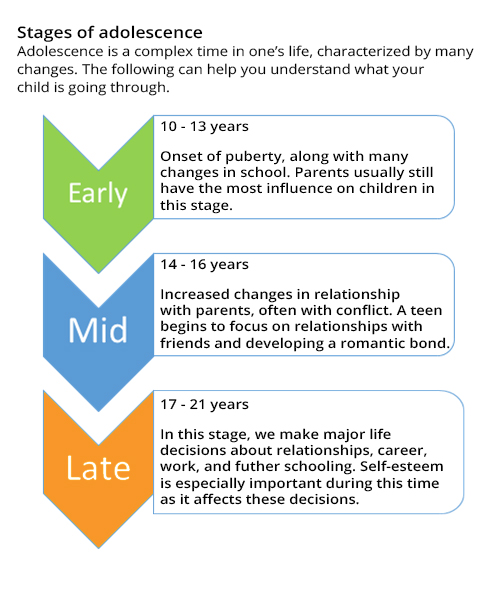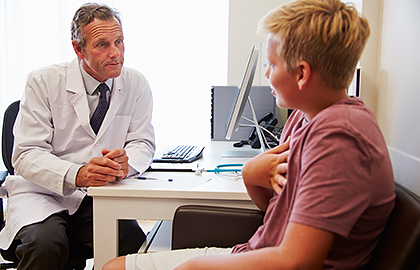5 ways to help your teenager survive acne

If your teenager seems upset by acne, here’s how you can help.
1. Take acne seriously
Telling your teen that the pimples, blackheads, and other blemishes will eventually clear on their own may do more harm than good. While waiting for acne to clear on its own, your teen’s self-esteem could plummet. Many studies show that having acne tends to lower self-esteem.
Kids who have acne can also be bullied. Classmates may call them names like “pizza face” or “crater face.” They may tell them to wash their face. Bullying can also lower self-esteem.
Studies show that self-esteem rises when acne clears. Treatment can help clear acne.
Treating acne now can also prevent acne from worsening. Without treatment, acne sometimes becomes severe. When severe acne clears, it can leave permanent acne scars.
2. Be cautious about reminding your teen to use acne treatment
For treatment to work, your teen must use it. To help, you may want to remind your teen to use the acne treatment. Do this cautiously.
In a small study, dermatologists found that when parents reminded their teens every day to use their acne medicine, the approach backfired. The teens said the daily reminders felt like “nagging.” This caused the teens to use their acne treatment less often. Fewer reminders from parents may be more effective.
What may help is to keep all of your teen’s dermatology appointments. Studies show that most people, including teenagers, are more likely to follow a treatment plan right before and after an appointment.
3. Try to reduce stress
During the teenage years, just about everything can seem stressful. That said, anything you can do to reduce stressful situations can help. Stress can cause acne to flare.


Having acne can affect how teens and even adults feel about themselves. Many studies have shown that having acne can lead to depression, anxiety, or both. The longer one has acne, the more likely these problems are to occur.
Studies have also found that clearing acne can relieve depression and anxiety.
Because depression can have such a devastating effect on one’s life, it’s important for parents to recognize the signs, which may include:
Sadness that lasts for two weeks or longer
Loss of interest in activities that your teen once enjoyed
Tendency to avoid social activities, even with people their own age
If you notice any of these behaviors while your teen has acne, it may be time to see a dermatologist for acne treatment. Thanks to advances in treatment, virtually every case of acne can be successfully treated.

If your teen sees a dermatologist, giving your teen time alone with the dermatologist can help everyone. It allows the dermatologist to find out want your teen wants and create a bond. This can be a lot harder to do when a parent is in the exam room.
Most teenagers get acne. If the acne upsets them, having someone who can help them see clearer skin is sure to be appreciated.
 Atopic dermatitis: More FDA-approved treatments
Atopic dermatitis: More FDA-approved treatments
 Biosimilars: 14 FAQs
Biosimilars: 14 FAQs
 How to trim your nails
How to trim your nails
 Relieve uncontrollably itchy skin
Relieve uncontrollably itchy skin
 Fade dark spots
Fade dark spots
 Untreatable razor bumps or acne?
Untreatable razor bumps or acne?
 Tattoo removal
Tattoo removal
 Scar treatment
Scar treatment
 Free materials to help raise skin cancer awareness
Free materials to help raise skin cancer awareness
 Dermatologist-approved lesson plans, activities you can use
Dermatologist-approved lesson plans, activities you can use
 Find a Dermatologist
Find a Dermatologist
 What is a dermatologist?
What is a dermatologist?